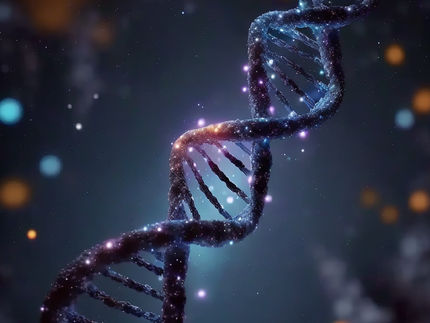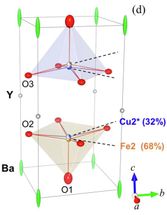Superspreading events as drivers of SARS-CoV-2 evolution
What evolution has SARS-CoV-2 undergone since the beginning of the pandemic? Scientists from the German Cancer Research Center, in collaboration with colleagues from the Applied Biomedical Science Institute, San Diego, USA, analyzed this using data from the U.S. national SARS-CoV-2 sequence database. The combination of mutations plus "super spreading events" fuels the spread of genetic viral variants in the population.

Symbolic image
pixabay.com
The researchers analyzed data from more than 62,000 SARS-CoV-2 genomes from 42 U.S. states from January 2020 to April 2021. As early as March 2020, the team documented the first deviations from the original "Wuhan variant," which was no longer detectable from early summer 2020. The number of mutations per viral genome gradually increased over time. Based on certain key mutations, the researchers defined 14 different variants, some of which had different levels of prevalence across U.S. states.
For Summer 2020, the researchers observed a sharp sudden burst of mutations. "We suspect that a sequence of so-called "superspreader events" caused these clusters. As a result, even rare mutations that initially occur in less than one percent of all infected individuals can suddenly become widespread," explains Nina Papavasiliou of the German Cancer Research Center.
In Q4 2020, a substantial number of mutations in the gene encoding the spike protein emerged. These mutations were not considered problematic and some were so rare that it was actually expected that they would be lost through genetic drift. Instead, most of these mutations actually increased in frequency to substantial levels. "These mutants are all circulating in the population. We need to be aware that one more superspreading event can be all that it takes for them to proliferate and give rise to new variants," Papavasiliou warns.
By the end of 2020, B.1.1.7, initially referred to as the British variant, emerged as the first "variant of concern" in the U.S. population and overall viral genome diversity skyrocketed. What was startling to researchers was the realization that such virus variants of concern were accumulating mutations again within just three months.
The genome of SARS-CoV-2 was considered rather stable at the beginning of the pandemic - at least compared to other viruses. Papavasiliou and colleagues, analyzing the mutation patterns in detail, have now discovered a mechanism that could be an important driver of genetic diversity: Enzymes of the APOBEC group are part of the innate defense against infection in mammals and humans. They attack the viral genome and can thus render the pathogens harmless - or else spur the emergence of mutations.
"The evolution of SARS-CoV-2 will continue. Mutations emerge all the time, and superspreading events help them breakthrough. To prevent the world from being constantly ravaged by increasingly unpleasant viral variants, we must continue to protect ourselves from infection, especially indoors and in areas with low vaccination coverage," the scientist sums up.
Original publication
Other news from the department science

Get the analytics and lab tech industry in your inbox
By submitting this form you agree that LUMITOS AG will send you the newsletter(s) selected above by email. Your data will not be passed on to third parties. Your data will be stored and processed in accordance with our data protection regulations. LUMITOS may contact you by email for the purpose of advertising or market and opinion surveys. You can revoke your consent at any time without giving reasons to LUMITOS AG, Ernst-Augustin-Str. 2, 12489 Berlin, Germany or by e-mail at revoke@lumitos.com with effect for the future. In addition, each email contains a link to unsubscribe from the corresponding newsletter.





















































